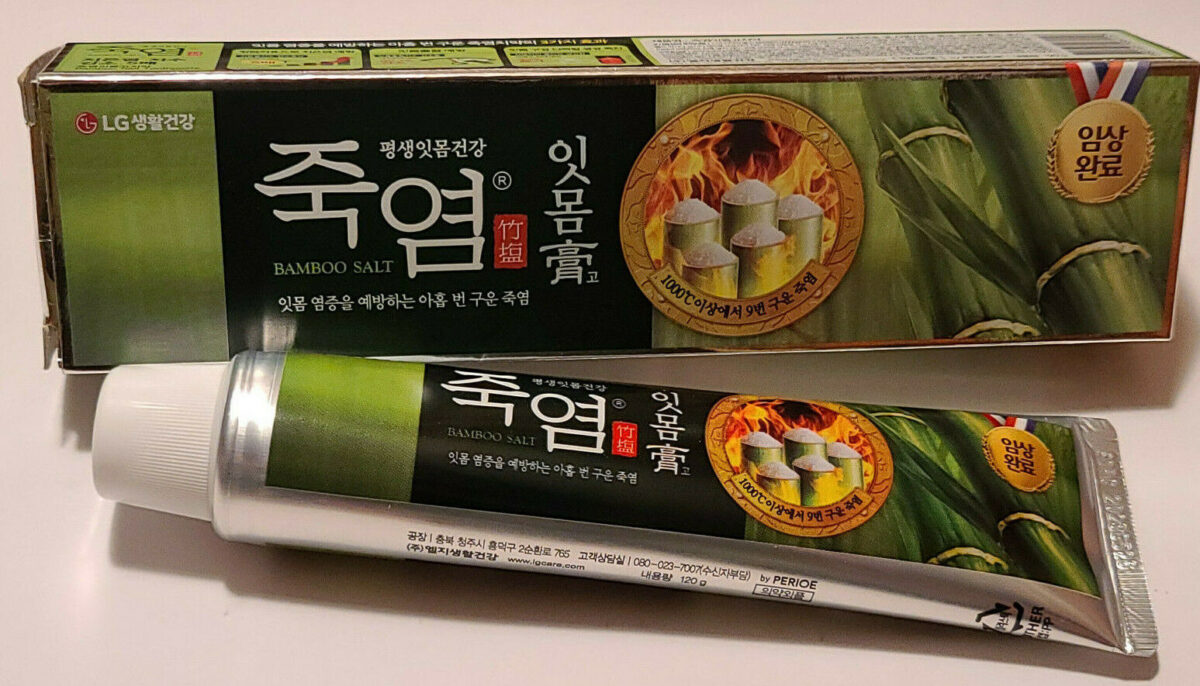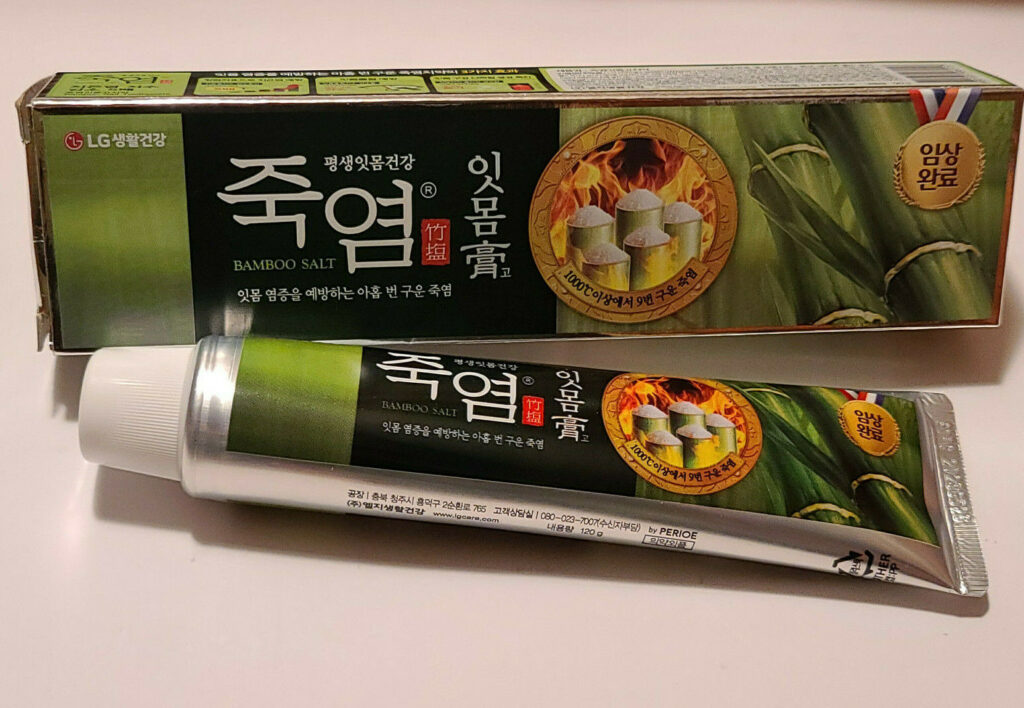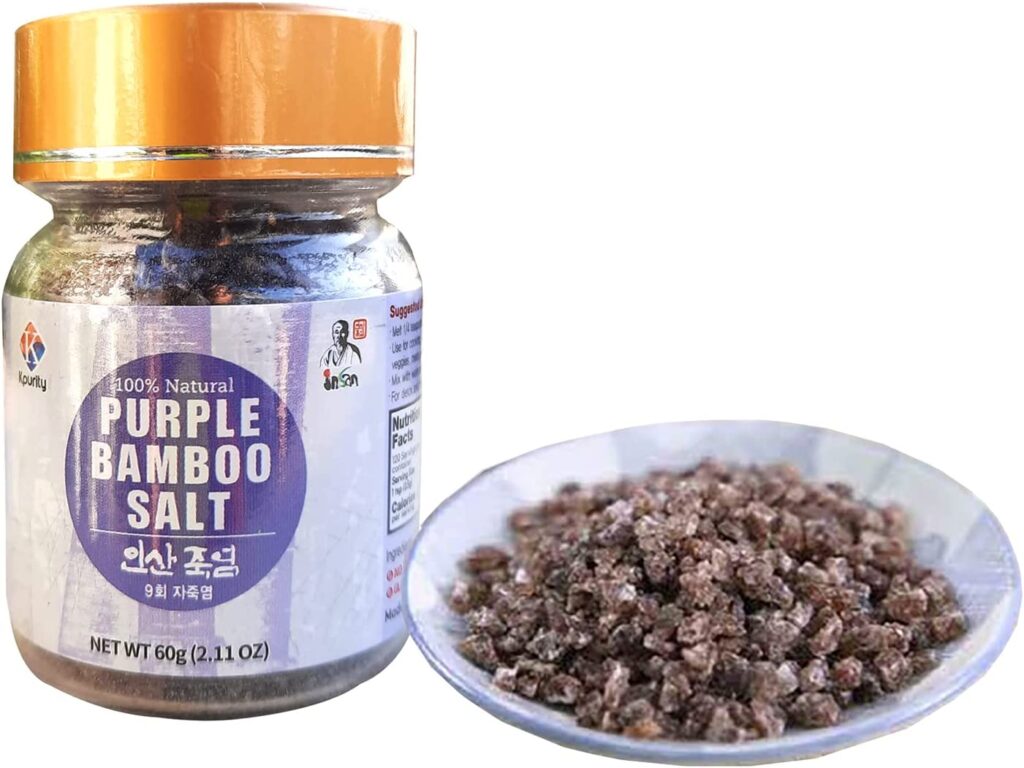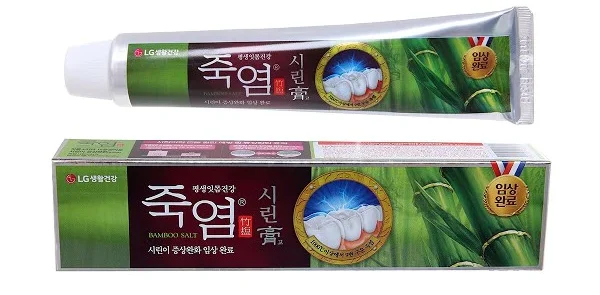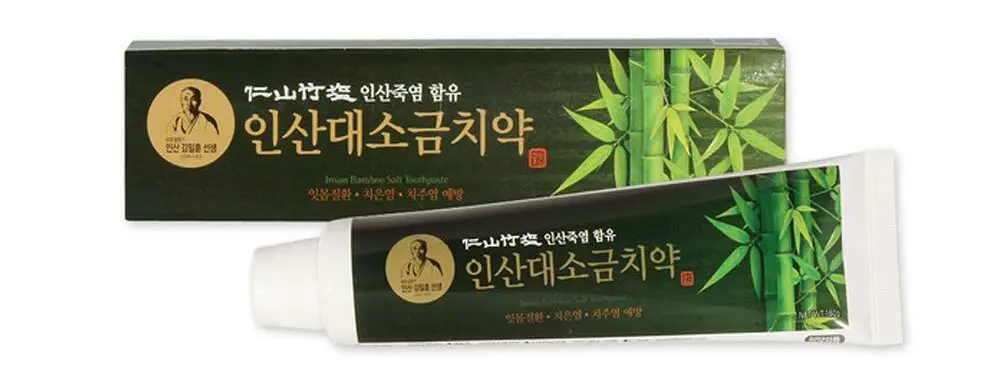Are you tired of the same old toothpaste options that promise the world but never quite live up to their claims? In today’s world, where it seems like everyone is searching for more natural and sustainable alternatives, it’s no surprise that we’re seeing a resurgence of interest in traditional remedies. One such ancient gem that has been making waves in the world of oral hygiene is South Korea’s famous bamboo salt toothpaste.
Bamboo salt toothpaste has become ever more popular as an alternative to big brand toothpastes. Bamboo salt toothpaste manufacturers touts the inclusion of bamboo salt (also known as Jookyeom in South Korea) into its product and claimed that the natural composition has made it a ‘better’ toothpaste than most of its big-brand counterparts on the shelves.
Join us as we explore the history and benefits of bamboo salt, and what makes bamboo salt toothpaste stand out from other toothpaste options out there. Are you ready to unlock the power of nature for a healthier, happier smile? Let’s dive in!
Production of Bamboo Salt
Today, there are only a handful remaining bamboo salt plants in South Korea. All production of bamboo salt are guided according to a century-old production technique that involves the roasting of sea salt inside bamboo cylinders to ensure the highest quality. The production process is both time-consuming and labor-intensive, but it results in a mineral-rich salt with distinct properties and health benefits.
Here is an overview of the bamboo salt production process:
- Select of bamboo and sea salt. The process begins with the selection of high-quality sea salt and bamboo. The bamboo should be at least 3 years old, as this provides the ideal thickness and strength for the roasting process. The sea salt used is typically sun-dried and free of impurities.
- Filling of bamboo with sea salt. The bamboo cylinders are cut into sections, and one end of each section is sealed with natural clay. The cylinders are then filled with the sea salt.
- Sealing of bamboo cylinder: Once filled, the open end of each bamboo cylinder is sealed with more natural clay to prevent the salt from spilling out during the roasting process.
- Roasting. The sealed bamboo cylinders containing the sea salt are placed in a furnace and roasted in temperatures upwards of 1,600 degree Fahrenheit (900 degree Celsius). The process typically uses pine wood as fuel, which also contributes to the final flavor and aroma of the bamboo salt. This roasting process is called “iljuk” (일죽) in Korean, which means “one-time roasted.”
- Repeating the roasting process: The laborious, roasting process is repeated multiple times, usually between 3 and 9 times, depending on the desired quality of the final product. After each round of roasting, the melted salt solidifies and takes on the shape of the bamboo cylinder. The bamboo is replaced with a fresh one for each roasting cycle, and the salt is transferred to the new cylinder.
- Final roast: The final roast, called “gu-juk” (구죽) in Korean, meaning “nine-time roasted,” is the most crucial step. During this last round, the temperature is raised even higher to refine the salt and fuse it with the bamboo. This fusion process imbues the salt with minerals and trace elements from the bamboo.
- Cooling and solidification: After the final roasting, the salt is allowed to cool and solidify. The result is a premium salt known as nine-times-roasted bamboo salt. The salt is also known as “purple salt” due to the presence of sulfur which gives the salt a dark, purple appearance.
- Crushing and packaging: The solid columns of bamboo salt are crushed into smaller granules or ground into a fine powder, depending on the desired final product. The bamboo salt is then packaged and distributed for various uses, including as an ingredient in toothpaste, seasonings, or health supplements.
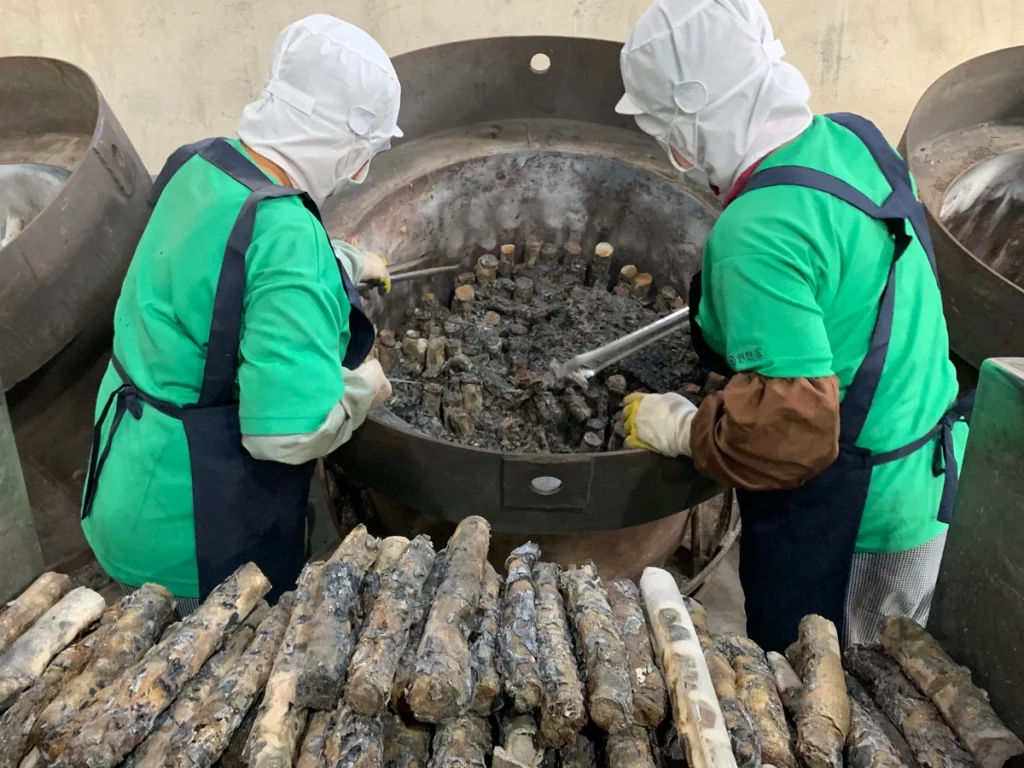
Due to the lengthy production and amount and labor involved, each kilogram of bamboo salt can fetch a price of up to US$250, depending on the season and producer. Note that while there are several cheaper variants of bamboo salt such as 2 Times Baked or 3 Times Baked Bamboo Salt, these products contains significantly less minerals than its 9 Times Baked counterparts.
Many believe that the high mineral content of bamboo salt helps with everything from oral health and skin care to the strengthening of the immune system. The rich antioxidants present in the bamboo salt is also said to aid the fighting free radicals in the body, hence offering anti-cancer benefits. That said, there have been little scientific research on the health benefits of bamboo salt to validate the claims.
Uses of Bamboo Salt
Bamboo salt is considered a health food in South Korea as it is reputed to confer health benefits when consumed. It is believed to have anti-inflammatory and antioxidant properties and can help strengthen the immune system, improve digestion, and promote overall health.
Apart from bamboo salt toothpaste, the unique salt is also incorporated into the daily lives of South Koreans in a variety of ways. In traditional Korean cuisine, it is used as a substitute for regular table salt to add flavor and enhance the nutritional profile of dishes such as soups, stews, and pickled vegetables.
Due to its antibacterial and anti-inflammatory properties, bamboo salt is also used as a mouth rinse solution to reduce gum inflammation and eliminate bad breath. To do so, rinse a teaspoon of bamboo salt with one-third cup of warm water and rinse your mouth for approximately 30 seconds.
To improve blood circulation and reduce pain associated with rheumatism, arthritis and gout, soak in a bath containing bamboo salt solution. Skincare products containing bamboo salt is also said to help sooth and heal various skin conditions like acne, eczema, and psoriasis.
Last but not least, bamboo salt is often incorporated into traditional health supplements in the form of capsules or powder to provide the essential minerals for overall wellness.
It is important to note that while bamboo salt is considered a traditional and natural ingredient in South Korea, it is not scientifically proven to have all the health benefits that are claimed.
Also, it’s not recommended to consume it in large amounts of salt without consulting a doctor. In 2013, a study highlighted the case of a 20-year-old woman who consumed excessive bamboo salt to aid digestion and weight loss. After several episodes of vomiting and diarrhoea, she was admitted to the hospital where was later diagnosed with hypernatremia, a condition where the sodium concentration in a person’s blood is excessively high. Fortunately, she recovered within a week with no permanent damage to her organ.
Bamboo Salt Toothpaste
Over the years, bamboo salt toothpaste has gained popularity among Americans for its purported health benefits including teeth whitening, prevention of cavities, and fighting bad breath. In particular, it is said to be highly effective in deterring periodontal diseases such as gingivitis and periodontitis. A 2012 laboratory study on the effects of bamboo salt on enamel remineralization also showed that the salt content significantly increased the hardness of the enamel while reducing mineral loss due to acid.
At present, the best-selling bamboo salt toothpaste in the market is LG Bamboo Salt Toothpaste. The company produces its own bamboo salt by harvesting bamboos from Jirisan and bay salt from the West Coast before roasting it via the traditional methods. LG also produces toothbrush with bristles containing bamboo salt extract.
Another notable toothpaste is Insan Bamboo Salt Toothpaste. Insan is currently the largest producer of bamboo salt, having sold over $24 million worth of it in 2017 alone. Over the years, Insan developed a lineup of bamboo salt toothpaste including its original Bamboo Salt Toothpaste, Dental Bamboo Salt (powder), and Triple Dental+ Bamboo Salt Nautral Toothpaste. All of its toothpaste products are parabens-free, triclosan-free, and flouride-free.
Takeaway
As we’ve explored in this blog post, bamboo salt toothpaste offers a unique and natural alternative to conventional toothpaste options. With its impressive array of oral health benefits, such as antibacterial properties, plaque reduction, anti-inflammatory effects, acid neutralization, and enamel strengthening, it’s no wonder that this ancient Korean secret is gaining popularity in the world of oral care.
As with any change in your oral care routine, it is essential to consult with your dentist before making the switch, especially if you have specific oral health concerns.
To conclude, with this natural wonder incorporated into your daily oral hygiene routine, you can unlock the power of nature for a healthier, happier smile. So, why not give bamboo salt toothpaste a try and experience the difference for yourself?

